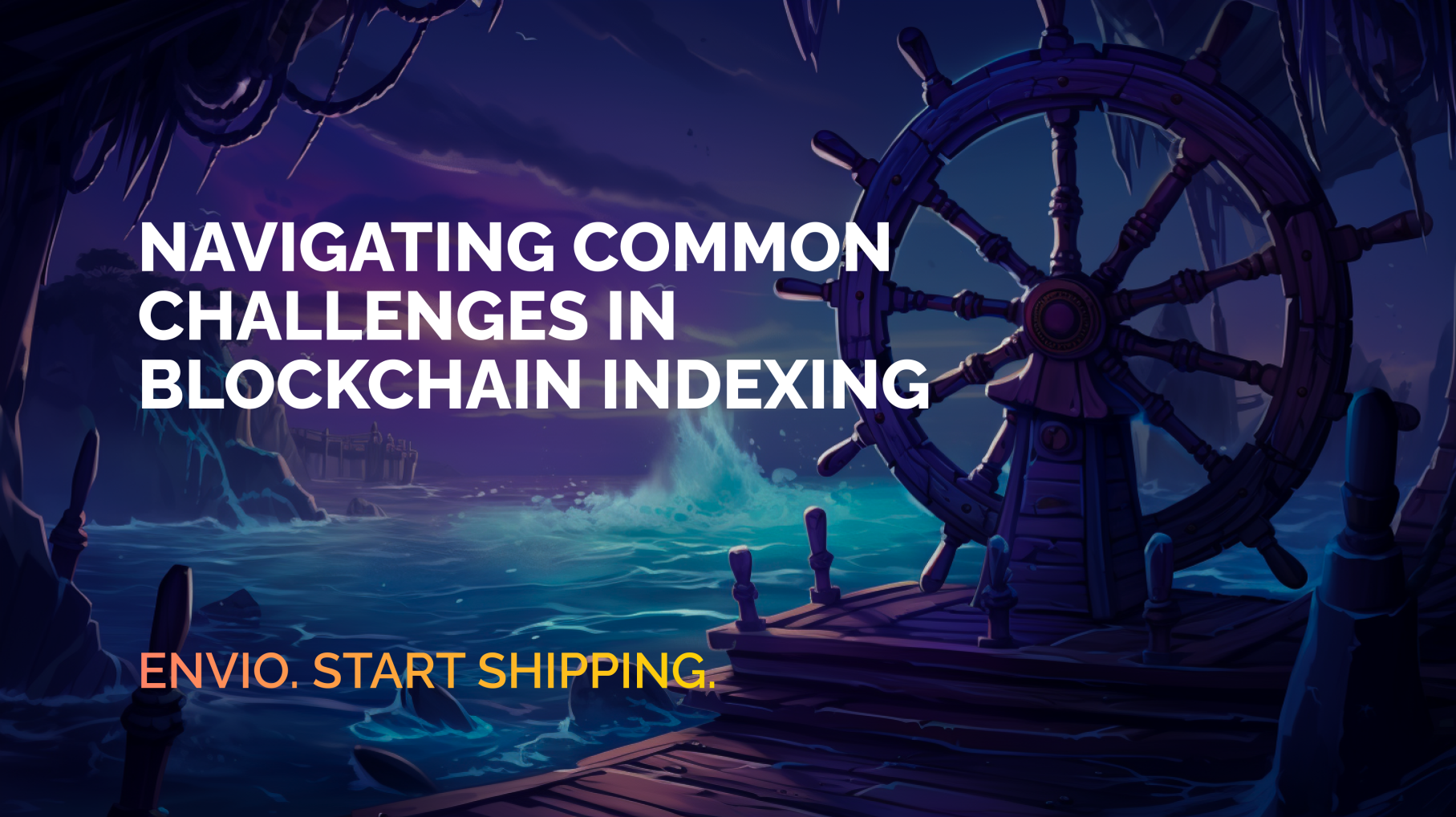Navigating common challenges in blockchain indexing

The rise of blockchain technology has empowered a new era of possibilities, promising a decentralized, secure, and transparent future. But it's not without its challenges. In this blog article, we'll cover the common hurdles faced in blockchain indexing and shed light on how innovative solutions are changing the game.
Common challenges of blockchain indexing
Underutilized data��
Blockchains emit an enormous amount of data and indexing it efficiently can become extremely challenging. Without proper handling, data can be overwhelming, obstructing usability and analysis, demanding the need for an effective indexing solution that streamlines data retrieval into a unified view.
Sync speeds
Blockchain networks are constantly evolving and staying in sync with real-time data is crucial. However, traditional syncing methods can be slow and request-heavy, delaying access to historical and real-time data. Slow syncing can also be costly in terms of development time and user experience.
Multi-chain aggregation
Teams that deploy their dApps to multiple chains necessarily desire a quick and optimized solution for aggregating and indexing all the multi-chain data into a single accessible database. The alternative of setting up multiple infrastructure components for multi-chain indexing creates additional operational overheads.
Development hurdles
Developing and hosting your own indexing infrastructure can be a monumental task, requiring specialized skills which take up significant development resources. Blockchain developers require cost-effective infrastructure tools that abstract away the complexities of managing hosted infrastructure and automate much of the set up process to simplify the overall development lifecycle.
Troubleshooting
When indexing goes wrong, and it can, identifying and resolving issues swiftly is a must. Troubleshooting can be time-consuming with poor error logging and slow sync speeds.
Users don’t see runtime errors, they see bad apps.
This can lead to users involuntarily churning toward competitor products. Some indexing solutions offer integrated testing frameworks to increase confidence before deployment.
Exploring Envio as an indexing solution
Blockchain indexers like Envio don’t just acknowledge these challenges, it conquers them. With its blazingly fast sync speeds, automatic code generation, GraphQL integration, multi-chain EVM compatibility, cost-effective hosting service, and support for JavaScript, TypeScript, and ReScript projects, Envio transforms blockchain indexing into a frictionless and quick developer experience.
Ship with us. 🚢
By builders, for builders. Envio is a dev-friendly, speed-optimized, modern blockchain indexing solution that addresses the limitations of traditional blockchain indexing approaches and gives developers peace of mind. By harnessing the power of Envio, developers can overcome the challenges posed by latency, reliability, and costs across various sources. Envio serves as the front door for any application’s need to access, transform, and save real-time or historical data, from any EVM-compatible smart contracts.
If you're a blockchain developer looking to enhance your development process and unlock the true potential of Web3 infrastructure, look no further. Join our growing community of elite developers, check out our docs, and let's work together to revolutionize the blockchain world and propel your project to the next level.
Follow Envio on Twitter and/or Lenster for updates on new features, or jump into our Discord for any questions.